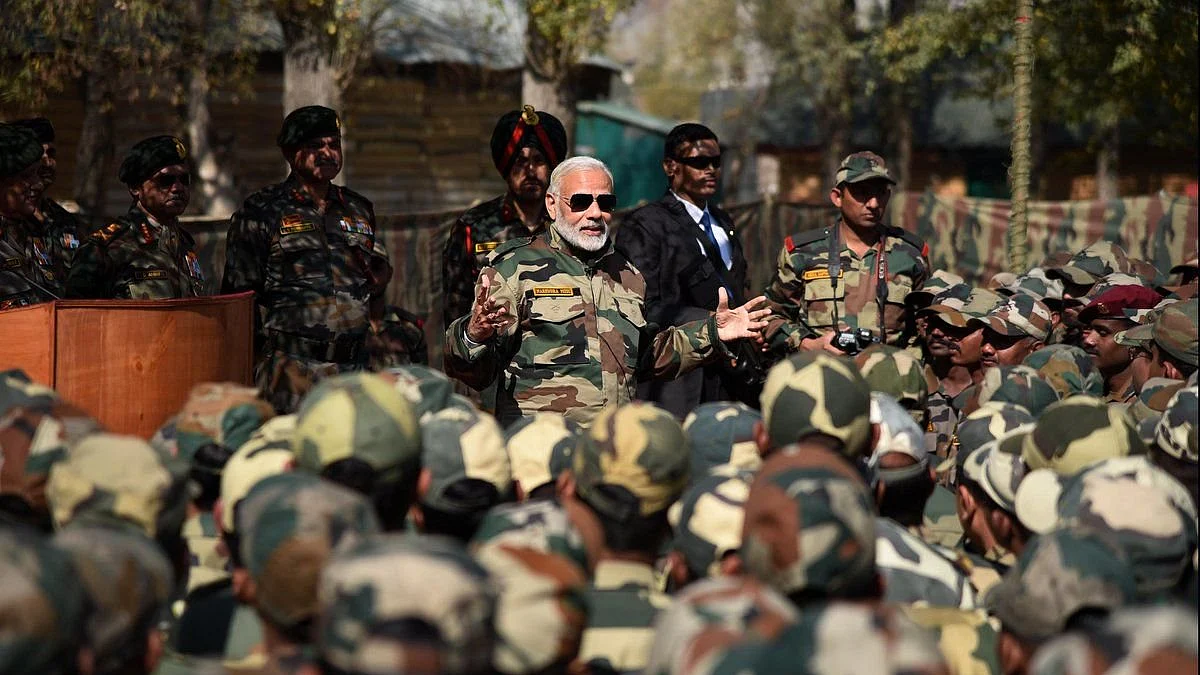‘Surgical strike’ exposes Prime Minister’s selective concern for soldiers?
Modi’s remarks that he was “extremely worried” about safety of soldiers when surgical strike was conducted, has prompted experts to ask,“why such concern for a handful involved in a single operation?”

On the intervening night of September 29-30, 2016, Prime Minister Narendra Modi was on tenterhooks. He couldn’t breathe easily till the last soldier returned safely next morning, Modi told news agency ANI recently, disclosing the details of the tactical military operation, touted as surgical strike.
“I knew it (surgical strikes) was a big risk. I never care about any political risk to me. The biggest consideration for me was the safety of our soldiers,” he said, ahead of the screening of the film, “Uri: The Surgical Strike”, which is based on a cross-border raid into Pakistan Occupied Kashmir in retaliation for the killing of 20 soldiers at Uri, Jammu and Kashmir, by four heavily armed terrorists of the Pakistan-backed Jaish-e-Mohammed group.
“The commandos for the operation were carefully chosen and trained. We arranged for all the equipment they needed. Still, I remained anxious through it all,” Modi had said in his interview, adding that the dates for the covert operation were changed twice in view of safety concerns for the soldiers involved. “In the early morning, there was a time when the flow of information stopped for an hour. My anxiety increased. That time was extremely difficult for me...Then came the information that two-three units have reached the safe zone, so don't worry. But I said I won't breathe easy till the last man returns.”
Notably, well before the idea of the movie was conceived, it was Modi government which dramatised the cross-border raid on terrorist launch pads across the LoC. Even though the extent of damage and number of militants’ causalities remains ambiguous, the government was quick in boasting that “Pakistan has been taught a lesson on its own soil.”
Several government events preceded the second anniversary of the tactical-level retaliatory strike before the “Surgical Strike Day” was celebrated across the country on 29 September 2018. The “first-time-disclosure” about surgical strike by PM Modi ahead of ensuing Lok Sabha elections, many feel, is not a coincidence.
“When soldiers are dying regularly in Kashmir why such concern for a handful involved in a single operation?” asked a defence analyst and a long-time observer of Kashmir conflict, adding that “If Prime Minister really experienced heightened anxiety for soldiers engaged in tactical operation, it only shows his selective attentional bias towards soldiers.”
The following data sheet, prepared by South Asia Terrorism Portal, shows that the number of causalities of security personnel and civilians amid heightened terrorist violence in Jammu and Kashmir has been rising exponentially since 2014, when Narendra Modi became the Prime Minister:

Calling out Prime Minister’s selective attention engagement with soldiers, the defence experts point out that in the past decade, government forces suffered the highest number of fatalities in 2018 in the conflict-ridden state. Over 95 soldiers had to lay down their lives in the line of duty last year.
“Does the government have a Kashmir policy?” observers wonder, asserting that Modi-Doval doctrine has proven disastrous for the state as well as the country.
Paradoxically, after all the chest-beating, the over-hyped surgical strike has proven counter-productive if deaths of civilians and soldiers besides ceasefire violations are anything to go by.
Over the last two years, according to defence experts, Pakistan has been responding to India’s aggressive posture along the LoC in a similar fashion. While beheading and mutilation of soldiers’ bodies are routinely reported from the LoC, the 2003 India-Pakistan border truce now stands redundant.
Jammu and Kashmir, according to official figures, recorded 2,936 instances of ceasefire violations in 2018 — the highest in the past 15 years with an average of eight cases daily — in which 61 people were killed and over 250 injured.
Asked during the interview, if the surgical strike fulfilled its objectives, PM Modi though avoided to give a clear answer, he had maintained, “it would be a big mistake to think that Pakistan will start behaving after one fight. It will take a long time for Pakistan to start behaving.”
While Modi government has hardly done anything for modernisation of the armed forces in the past four-and-a-half-year, experts believe that the politicisation of the covert operation has only jeopardized similar future operations.
Incidentally, the Prime Minister’s disclosure on surgical strike has come at a time when BJP—which is the richest political party in the country—has been campaigning to crowdfund for its extravagant election campaign in the name of armed forces.
Follow us on: Facebook, Twitter, Google News, Instagram
Join our official telegram channel (@nationalherald) and stay updated with the latest headlines
